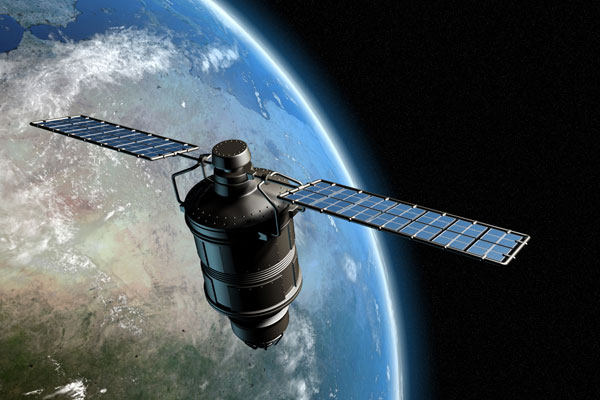GPS technology to become less important
A mixture of technologies will be used for locations-based services to make up for the shortcomings of the core GPS system, according to a new report.


Sign up today and you will receive a free copy of our Future Focus 2025 report - the leading guidance on AI, cybersecurity and other IT challenges as per 700+ senior executives
You are now subscribed
Your newsletter sign-up was successful
The reliance on GPS may soon reduce, with other technologies - such as Wi-Fi and Cell ID - becoming increasingly important, according to consultancy firm ABI Research.
"Users expect a seamless and transparent location experience regardless of application or environment," said ABI Research director Dominique Bonte. "Since no single positioning technology can provide this, the future will be about hybrid positioning systems."
Bonte suggested that as well as the usual suspects such as Wi-Fi and A-GPS, this cocktail of location detection systems could include Cell ID, motion sensors, Bluetooth and RFID and will make up 25 per cent of all positioning solutions by 2014.
The report highlighted how the lack of open platforms is hindering the adoption of alternative positioning systems, but the likes of Google are helping to shake things up.
The search giant is building up its own reference database of cell-towers and Wi-Fi hotspots through user generated content and self learning mechanisms. The intention is to make location data available to more people and smaller vendors without having to go through the major carriers.
This combination of a hybrid technology approach and more open access to data should mean that we can more easily get a fix on our location, even indoors, opening the way to richer services in the future.
Sign up today and you will receive a free copy of our Future Focus 2025 report - the leading guidance on AI, cybersecurity and other IT challenges as per 700+ senior executives
Benny Har-Even is a twenty-year stalwart of technology journalism who is passionate about all areas of the industry, but telecoms and mobile and home entertainment are among his chief interests. He has written for many of the leading tech publications in the UK, such as PC Pro and Wired, and previously held the position of technology editor at ITPro before regularly contributing as a freelancer.
Known affectionately as a ‘geek’ to his friends, his passion has seen him land opportunities to speak about technology on BBC television broadcasts, as well as a number of speaking engagements at industry events.
-
 ITPro Best of Show NAB 2026 awards now open for entries
ITPro Best of Show NAB 2026 awards now open for entriesThe awards are a fantastic opportunity for companies to stand out at one of the industry's most attended shows
-
 Mistral CEO Arthur Mensch thinks 50% of SaaS solutions could be supplanted by AI
Mistral CEO Arthur Mensch thinks 50% of SaaS solutions could be supplanted by AINews Mensch’s comments come amidst rising concerns about the impact of AI on traditional software
